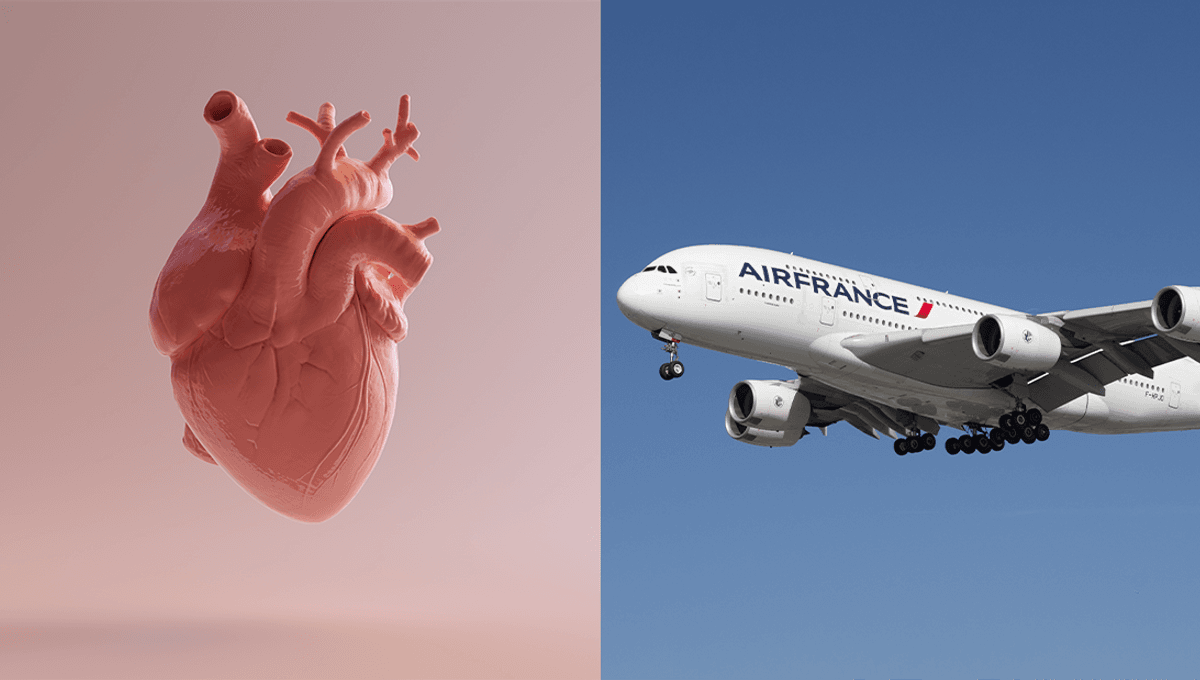
For the first time, a donated heart has been flown 12 hours and 6,750 kilometers (4,194 miles) across the Atlantic Ocean and successfully transplanted into its recipient.
The donor heart came from a 48-year-old man in the French West Indies who had a stroke and, three days later, was declared brain dead. After a routine procedure to collect the heart, it was transported via a commercial airline to Paris, France, marking the first time a donated heart has flown across the Atlantic.
At the Pitié-Salpêtrière Hospital in Paris, surgeons Guillaume Lebreton and Pascal Leprince successfully transplanted the heart into a 70-year-old man with a terminal heart condition. According to a letter written by the duo to a medical journal, both of the heart’s ventricles (the lower chambers of the heart that pump blood out to the body) began to function normally immediately. The recipient was discharged from hospital 30 days later.
Lebreton and Leprince called the success “a feat previously unimaginable in organ transplantation”. It was achieved as part of a pilot study known as PEGASE, which aims to establish whether successful transplant is feasible after the heart has been preserved for prolonged periods of time – specifically, on journeys from Martinique and Guadeloupe in the Caribbean.
The heart was preserved using a technique called hypothermic oxygenated perfusion, where a heart is kept cold whilst oxygenated fluid is pumped through it by a machine. Whilst there have been clinical trials exploring such a technique, according to the surgeons, this is the first time it’s been tested for such extreme transport times.
If the results seen on this occasion are successfully replicated in the rest of the study, it’s hoped that the technique could have “the potential to redefine the landscape of heart transplantation with unlimited geographical procurement and lowered time constraints.”
At present, transplanting hearts is often a race against time – they generally need to be transplanted within four hours of being removed from a donor.
Increasing the geographical pool of potential donors could also have an impact on transplant list waiting times. In the US, for example, there are around 3,000 people on the waiting list for a heart on any given day, but only 2,000 hearts are available each year. Depending on eligibility criteria, some people may be waiting for years; being able to get hearts from a wider range of places could cut down that time.
And it doesn’t have to be expensive either, said Lebreton and Leprince. “We wanted to make this operation reproduceable and keep transport costs bearable,” they wrote. “Unlike conventional donor-heart transport practices involving expensive private jets, we therefore flew in the coach-class cabin aboard a commercial airliner (Air France).”
So, who knows? If you happen to be on a transatlantic flight in the near future, you may well be traveling with an extra special passenger.
The surgeons’ letter is published in The Lancet.
Source Link: World-First As Donor Heart Travels Nearly 7,000 Kilometers Across Atlantic For Successful Transplant